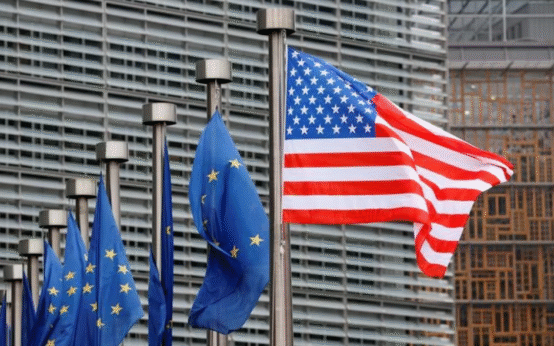Kenyan officials have confirmed that Google will provide its advanced Gemini artificial intelligence tools to the United States government, a move that highlights both the growing influence of AI technology and the central role of global tech companies in shaping future governance and security.
The announcement reflects Washington’s increasing reliance on cutting-edge AI to improve operations, strengthen cybersecurity, and boost decision-making.
What is Google’s Gemini?
Gemini is Google’s latest family of AI models, developed to compete directly with other leading systems in the fast-moving field of artificial intelligence. The tools are designed to handle a wide range of tasks from natural language processing and data analysis to advanced problem-solving, coding support, and security applications.

For the U.S. government, integrating such tools could mean faster data handling across departments, improved security monitoring, and more efficient public services. Government agencies also see Gemini as a platform that helps them respond to emerging challenges in areas such as cyber threats, defense, and healthcare.
IS Gemini AI Supports United States Operations?
The U.S. government has been pushing hard to strengthen its use of AI in both civilian and defense sectors. Officials in Washington see AI not just as a tool for efficiency, but as a matter of national security and global competitiveness.
With China and other major powers investing heavily in AI research, the U.S. is keen to stay ahead. By partnering with Google and accessing Gemini’s capabilities, the government hopes to integrate AI into daily operations more effectively. This includes monitoring large datasets, identifying risks quickly, and supporting decision-makers with accurate, real-time information.
Kenya’s angle: watching and learning from global AI adoption
Although the deal is primarily between Google and the U.S. government, Kenyan officials have been closely following developments. Kenya has long marketed itself as East Africa’s “Silicon Savannah,” with Nairobi serving as a hub for fintech, startups, and digital infrastructure.

By paying attention to global AI partnerships, Kenya hopes to attract more investment into its own technology sector. Watching how powerful players like the U.S. adopt tools such as Gemini gives Kenya a roadmap for its own policies and innovation strategies.
While the partnership highlights the promise of AI, it also raises questions about ethics, transparency, and control. Civil rights groups in the U.S. and abroad have warned that using AI in sensitive areas—such as law enforcement, surveillance, and defense could lead to abuses if not properly regulated.
Global competition in artificial intelligence
This agreement comes against the backdrop of a global race for AI dominance. The U.S., China, and the European Union are all competing to set the standards and control the technologies that will define the future.
For countries like Kenya, this creates both opportunities and challenges. On one hand, Africa could benefit from access to powerful AI tools for development. On the other, there is the risk of becoming too dependent on foreign technology without building strong local capacity.
Google’s decision to provide Gemini AI tools to the U.S. government underscores how central artificial intelligence has become to global politics, security, and economic planning. For the United States, it strengthens its technological edge and helps it prepare for future challenges.


 Google Turns AI Setbacks into Dominance
Google Turns AI Setbacks into Dominance  Kim Jong-un oversees test of U.S. global hawk-like drone
Kim Jong-un oversees test of U.S. global hawk-like drone  Users Are Losing Trust in Biometrics
Users Are Losing Trust in Biometrics  Postal traffic to US down by over 80% amid tariffs, UN says
Postal traffic to US down by over 80% amid tariffs, UN says  China Targets US Fiber Optic Firms After Washington Sanctions
China Targets US Fiber Optic Firms After Washington Sanctions  EU court upholds smooth transfer of data from Europe to US
EU court upholds smooth transfer of data from Europe to US